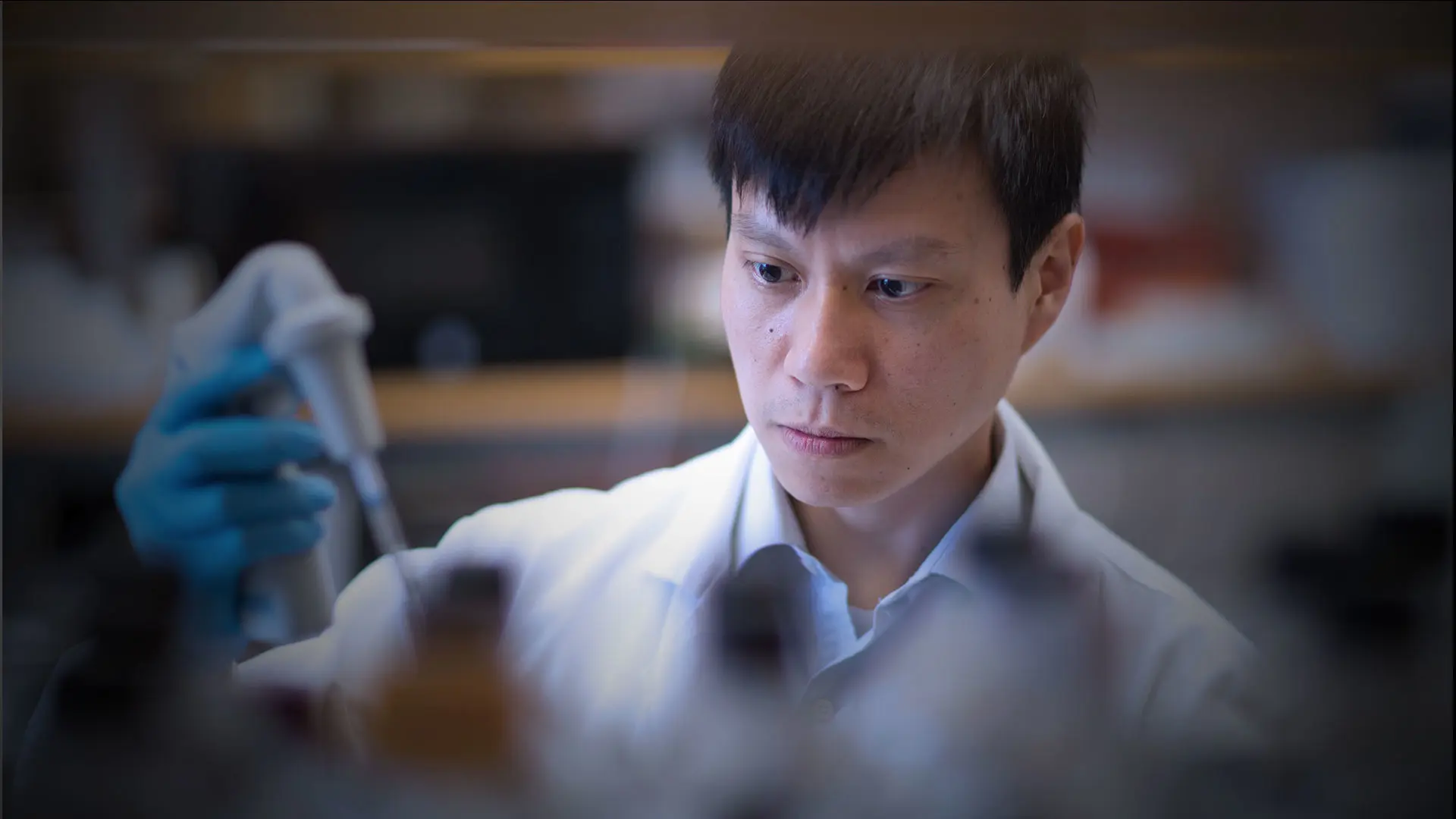The Mount Sinai Hospital program, Mount Sinai Beth Israel and Mount Sinai West, and the newest, a recently Accreditation Council for Graduate Medical Education-approved pediatric neurology residency program, attract top candidates. Additionally, the research
track is renowned for training clinician-investigators who want to integrate research into their residency and fellowship training. Mount Sinai’s National Institutes of Health (NIH)- supported R25 research residency program has been continuously funded since 2012.
Meet two faculty members who completed the R25 program and a current research resident in the program. Their work is poised to translate research to advance clinical practice.
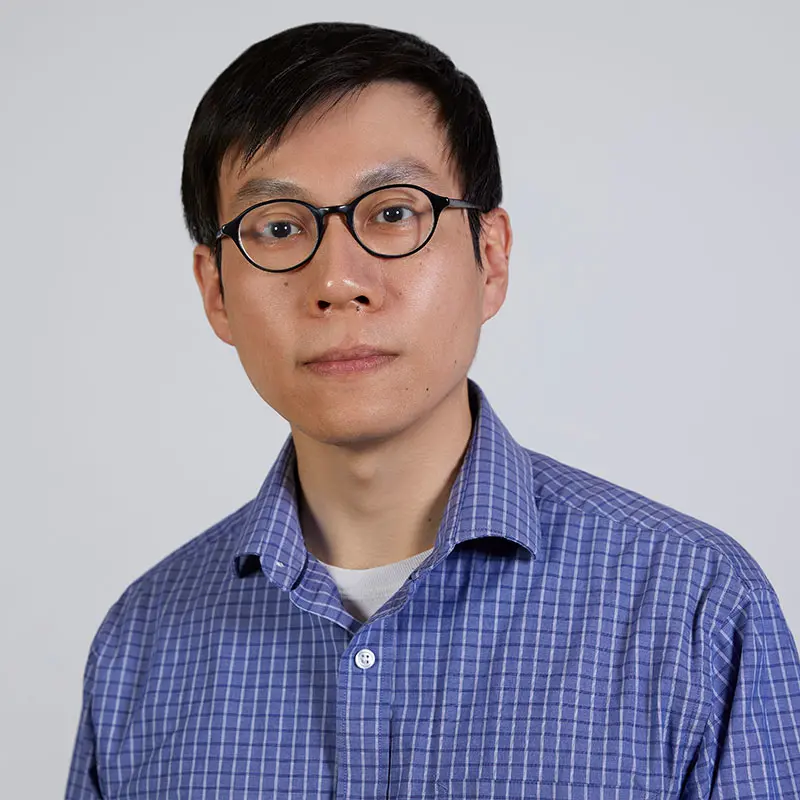
Sam Horng, MD, PhD
Sam Horng, MD, PhD
Dr. Horng is Assistant Professor of Neurology at the Icahn School of Medicine at Mount Sinai and a multiple sclerosis specialist. Dr. Horng completed his MD and PhD at Harvard Medical School and the Massachusetts Institute of Technology, his internship at Yale New Haven Hospital, and his neurology research residency at The Mount Sinai Hospital, where he was awarded an R25 Research in Residency grant from the NIH and a Leon Levy Fellowship in Neurosciences. Dr. Horng’s lab investigates the role of astrocytes in controlling immune cell entry into the brain during autoimmune attack.
In residency, he stayed on the research track because Mount Sinai invested in him. “They gave me the support, the time, and the mentoring, which are so important for cultivating a research career,” he says. The R25 was a significant part of that support.
When he interviewed for the residency program at Mount Sinai, Dr. Horng felt a culture of collegiality, warmth, and “a real tradition of teaching and investment in trainees,” he says. “My residency program was one of the most satisfying times of my life. The eight of us are like siblings.”
“Mount Sinai gave me the support, the time, and the mentoring, which are so important for cultivating a research career.”
- Sam Horng, MD, PhD
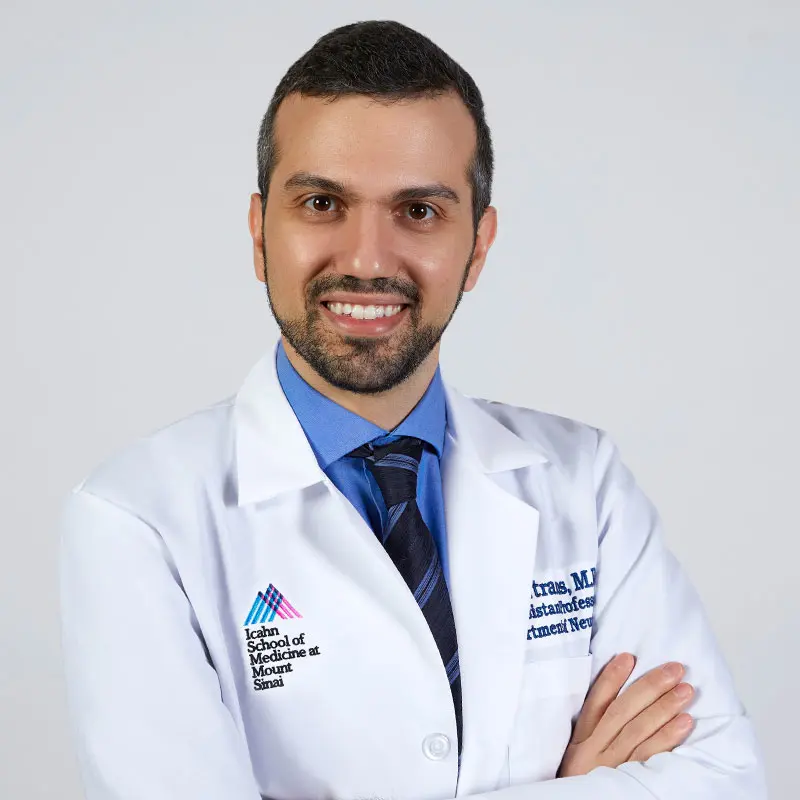
Achillefs Ntranos, MD
Achillefs Ntranos, MD
Dr. Ntranos is Assistant Professor of Neurology specializing in multiple sclerosis and demyelinating diseases. He received his medical degree from the National and Kapodistrian University of Athens Medical School in Greece, after which he completed a research fellowship in neuroimmunology at Johns Hopkins University. After an internship at Albert Einstein School of Medicine, Dr. Ntranos completed his residency training in neurology and a fellowship in multiple sclerosis at The Mount Sinai Hospital, for which he received the R25 research education grant from the National Institute of Neurological Diseases and Stroke and was awarded the Leon Levy Fellowship in Neurosciences. Dr. Ntranos leads a neuroimmunology lab at Mount Sinai, focusing on the role of immunoepigenetics in multiple sclerosis pathogenesis and disease progression.
“I was always interested in understanding how the human body works but, more importantly, how it does not work during disease,” Dr. Ntranos says. “I was inspired by the possibility of shedding light into these mechanisms by doing research and pushing the boundaries of our medical knowledge to develop new breakthroughs that help patients.”
“My training, mentorship, and the support I received here were critical for my development as a physician-scientist.”
- Achillefs Ntranos, MD
Dr. Ntranos interviewed at many different residency programs. “When I came to Mount Sinai, I was immediately impressed by the culture of the program, the teaching that was going on was superb, and I saw the unique setting that exists here that puts basic, translational, and clinical research so close to each other, and that is what drives innovation and fuels discovery,” he says. “My training, mentorship, and the support I received here were critical for my development as a physician-scientist.”
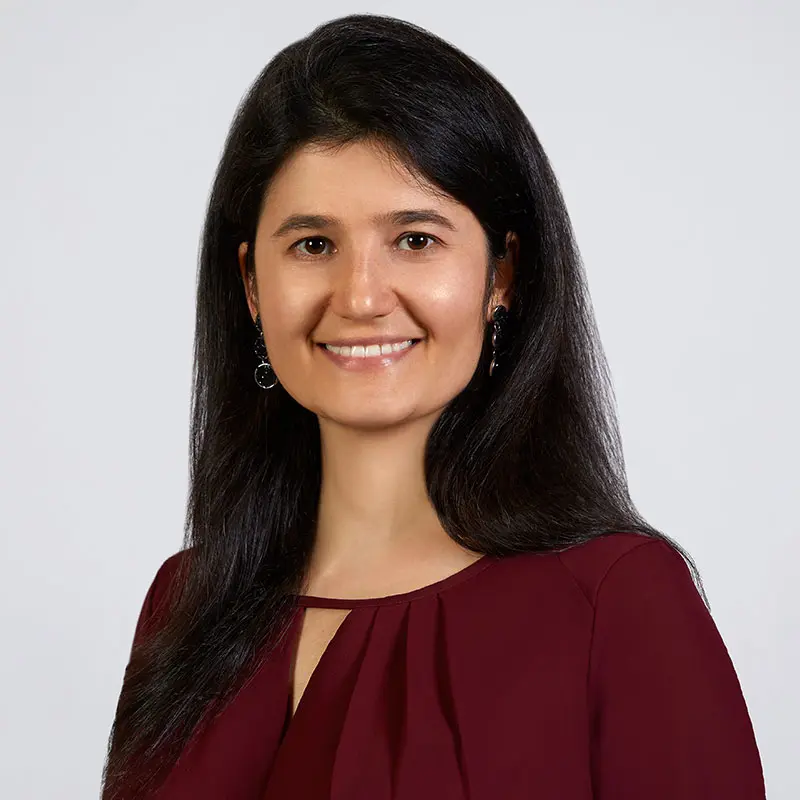
Veronica Peschansky, MD, PhD
Veronica Peschansky, MD, PhD
Dr. Peschansky became interested in research as an undergraduate at Brandeis University. She later was introduced to neuroscience research in the Dyslexia Lab at Beth Israel Deaconess Medical Center/Harvard Medical School. She then earned an MD and a PhD in the combined degree program at the University of Miami Miller School of Medicine.
“My research currently focuses on identifying predictive epigenetic biomarkers to distinguish non-infectious SIRS from sepsis, as well as for development of seizures as a consequence of sepsis.”
- Veronica Peschansky, MD, PhD
She is completing her neurology research residency at the Icahn School of Medicine at Mount Sinai, where she is supported by an NIH R25 grant and a Leon Levy Fellowship in Neurosciences. She will begin a fellowship in neurocritical care at New York Presbyterian (Columbia/Cornell) later this year. Her research currently focuses on identifying predictive epigenetic biomarkers to distinguish non-infectious SIRS from sepsis, as well as for development of seizures as a consequence of sepsis.
Dr. Peschansky was drawn to the Mount Sinai neurology research residency by its reputation as one of the “absolute top neuroscience research programs in New York and in the country,” she says. Characteristics of the program that appealed to her included the wide variety of subspecialties, exposure to neurocritical care, and the fact that “we’re not just numbers in this program,” she says. Dr. Peschansky plans to be a neurointensivist and to pursue a translational neuroscience career in academic research.
Featured
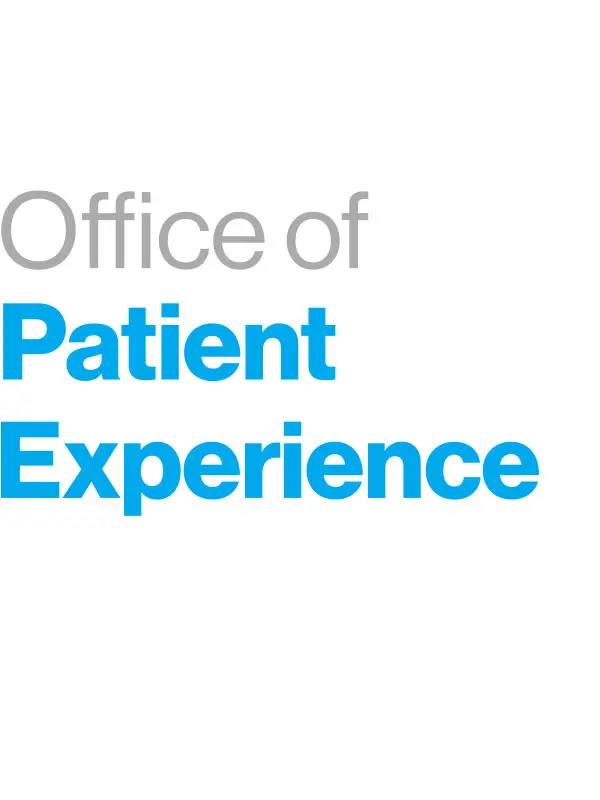
Department of Neurology
Icahn School of Medicine at Mount Sinai
